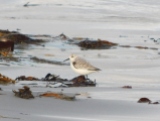Cape Freels is one of the best and richest shorebird areas in Newfoundland. It’s an ecologically rich ecosystem with extremely high biodiversity (130 species of birds observed) due to its inland and coastal wetlands, variety of habitat types (beaches, sand dunes, coastal marshes, and large eelgrass meadows), its unique location, and its relatively undeveloped state. It’s a staging and wintering area for hundreds of waterfowl of various species and breeding habitat for a variety of shorebirds and other species.
Our goal is to reduce threats to Red Knot, Piping Plover, Rusty Blackbird, and the Short-eared Owl, while restoring their damaged coastal habitat, and educate the public on this important ecosystem. This project builds on related conservation work by adding threat reduction to complement existing land conservation and promotional efforts.
This Community-Nominated Priority Place (CNPP) for Species at Risk project, based in Cape Freels, is undertaken with the financial support of the Government of Canada through the federal Department of Environment and Climate Change.

February 24th, 2023 – Extension of our Cape Freels Community-Nominated Priority Place Species at Risk Project Approved
Formal approval for the extension of our Conserving & Understanding the Species at Risk of Cape Freels Project has been given. What originally was a two-year project, then expanded to four-years, has now been granted an additional three-year expansion. This allows for IBEC and its partners to continue work in Cape Freels and Queen’s Meade studying Species at Risk through till 2026.
Undertaking collaborative action planning, threat prioritization, and implementation of conservation actions by liaising with local municipalities, leading community outreach, and conducting shorebird monitoring in Cape Freels and Queen’s Meade (Newtown), Newfoundland, has been the main aims to date. Actions will expand with this latest extension in terms of new species targets (e.g. Leach’s Storm Petrel), reach (e.g. new audiences, additional citizens engaged), approaches (e.g. application of complementary communication tools), and evaluation (e.g. analysis of data collected since project start) requiring additional time and resources.
IBEC would like to thank its team with Environment and Climate Change Canada who have worked very hard to ensure this funding was approved and who continue to feel our work along the northeast coast is vital for the conservation efforts of the department and local interest.

September 12th, 2022 – Environmental Presentations at Centreville Academy
Last week, IBEC and Stewardship Association of Municipalities Inc officials spoke to Grade 2 through 9 at Centreville Academy, about the importance of a healthy ecosystem.
Zachary Burrows, Conservation Biologist with SAM, spoke about the importance of wetlands and salmon habitat, while IBEC’s Executive Director Darren Sheppard and Senior Project Coordinator Kaylene Stagg, spoke about the importance of Cape Freels for shorebirds. Afterwards, a trip outside to explore the area around the school and get some exercise on the beautiful greenspace on the property.
We thank Ms. Perry for coordinating the visit, Zachary for the visit out from St. John’s, and all the staff and students at Centreville Academy for their interest in our presentations!
June 8th, 2022 – World Oceans Day 2022 – IBEC, DFO, and a few new friends
Today, June 8th, is World Oceans Day. We celebrated this with students from Pearson Academy and with officers from the Department of Fisheries and Oceans Enforcement Division (Clarenville, Glovertown, and Bonavista detachments).
We conducted presentations with the Grade 4’s through 6’s at Pearson Academy in the morning, which included sharing information on various ocean-dwelling creatures, and what IBEC does along the northeast coast. We then moved onto Cape Freels, where we conducted a cleanup of the First Beach and main parking areas. This also involved some hot dogs and cake for good measure!
We would like to thank Mrs. Kean, Mrs. Hann, and Mrs. Melindy from Pearson Academy and all of the students for helping us out today. We also would like to thank Officer Gillingham with Glovertown detachment for organizing, and all of the other officers for taking the time out of their busy schedules to assist us at today’s event.
June 2nd, 2022 – Mini-Cleanup in Cape Freels
Completed another successful cleanup of a few areas in Cape Freels earlier this week. With help from some local youth of all ages, we were able to remove debris from around and in the former church basement, along the road leading to the site, and along some portions of the main road in Cape Freels.
This cleanup is partly through our work involving Cape Freels for our shorebird project, seabird study, and also through MMSB’s cleanup program IBEC is involved with this year. We thank those that helped us with this cleanup! Great work!
January 24th, 2022 – Winter in Cape Freels
Below are some images of the wildlife and scenery that you would find in Cape Freels during the winter months. We still check for shorebird activity and other related data that various projects we are involved in would like to have during the colder months. All images are taken by Senior Project Coordinator Kaylene Stagg.
December 14th, 2021 – Guestbook House in Cape Freels a Huge Success!
Our Community-Nominated Priority Place Species at Risk Project in Cape Freels gave IBEC a unique opportunity to collect data about the people who use the area, what they use it for, and if they are using good stewardship practices, via surveys and comments through several books placed in the House. When the House was removed at the beginning of November to prevent damage from happening over the Winter and we tallied up all the surveys that were completed.. we had a whooping 175 surveys filled out!! We had individuals from local communities, almost all provinces, the Northwest Territories and even a few from the United States.
Thank you to all who completed our surveys. This data will help us understand the best way to focus our conservation measures in the years to come.
This Community-Nominated Priority Place for Species at Risk project, based in Cape Freels, is undertaken with the financial support of the Government of Canada through the federal Department of Environment and Climate Change Canada.

September 23rd, 2021 – Stewardship Association of Municipalities Conservation Biologist Visits Cape Freels
IBEC had the opportunity to host Stewardship Association of Municipalities (SAM) Conservation Biologist, Zachary Burrows, as he visited the area for the first time. Zachary met with IBEC officials, who gave him a tour of Queen’s Meade in Newtown and Cape Freels, which are both part of our CNPP project, and our office in Indian Bay. He also met with officials from the Town of New-Wes-Valley, Indian Bay, CWT, and Carmanville, regarding their stewardship plans and to introduce himself.
We thank Zachary and the Stewardship Association of Municipalities for being incredible partners on various projects currently in progress and for their guidance whenever required.

September 8th, 2021 – Pearson Academy Visits Cape Freels
The Grades 5 & 6 of Pearson Academy along with their teachers visited IBEC’s project area in Cape Freels. The students and staff of Pearson Academy learned about our “Conserving and Understanding the Species At Risk of Cape Freels” project, the wildlife that lives there, and how to protect them and the environment they live in. The students also completed a cleanup of the Cape Island Beach area as well.
Special thanks to Pearson Academy for allowing IBEC to teach their students about this project and all the benefits it has to this area!
This Community-Nominated Priority Place for Species at Risk project, based in Cape Freels, is undertaken with the financial support of the Government of Canada through the federal Department of Environment and Climate Change Canada.
August 26th, 2021 – IBEC Team Cleanup of Cape Freels to End the Summer
Students, staff, and volunteers conducted the final Team cleanup of the Summer in the Project site (students finished this week), on First Beach and Cape Island Beach. This cleanup focused on specific areas where beach fires occurred, leaving behind nails, broken glass, and plastics. We also collected general debris along the upper part of Cape Island Beach, close to the sand dunes.
Another pickup truck was filled with debris, disposed of at the local waste management facility. Nails and broken glass have been removed, which will hopefully reduce the risk of injury to those enjoying the sandy beaches, especially children.
We continue to remind the public to ensure all debris is removed after visiting this beautiful area of our province.
This Community-Nominated Priority Place for Species at Risk project, based in Cape Freels, is undertaken with the financial support of the Government of Canada through the federal Department of Environment and Climate Change Canada.
July 28th, 2021 – Cleanup of portions of Cape Freels Hiking Trail
With help from heavy equipment from the Town of New-Wes-Valley, a valued partner of our Cape Freels Shorebird Project, we were able to remove a full dump truck load of trash from the area!
Garbage included a lot of burned items, like tires, mattresses, lots of steal, plastics, glass, and other items. The cabin owners in the area appreciated it, since they were watching us from their decks and said “thank you!” after we finished!
We continue to ask the public not to use the environment, especially those on a Hiking Trail, as your own personal dumping ground (we have waste disposal sites for such things). The number of loads of trash we’ve assisted in taking to the dump continues to rise, and we’ll continue to do our part in making Cape Freels a beautiful spot to visit, and a healthy ecosystem for shorebirds and all wildlife to utilize for breeding, hunting, or stopovers.
This Community-Nominated Priority Place for Species at Risk project, based in Cape Freels, is undertaken with the financial support of the Government of Canada through the federal Department of Environment and Climate Change Canada.
Bird Walk, hosted by Birds Canada, at Cape Freels!
Officials from Birds Canada and IBEC will be on site at Cape Freels, Sunday, June 6th, at 6pm, to conduct a guided Bird Walk through the Cape Freels Hiking Trail area. IBEC is proud to be partnering in this unique experience in our own backyard.
Those interested are asked to meet in the main parking lot to the Trail (please follow our storyboards for directions) where a quick introduction of the group will occur, along with some basic guidelines for the Walk. Please bring your cameras if you’d like to take pictures of the scenery and birds! Dress for the conditions! And don’t forget your binoculars and water!

May 17th, 2021 – Storyboards & Guestbook House Installed at Cape Freels
This Community-Nominated Priority Place for Species at Risk project, based in Cape Freels, is undertaken with the financial support of the Government of Canada through the federal Department of Environment and Climate Change Canada.
January 11th, 2021 – Re-purpose and reuse. Rope turned into artwork.
Rope collected from our cleanups in Cape Freels, and other sources, is being turned into artwork by Duke Kelloway and the team at Norton’s Cove Studio. By IBEC supplying Duke with rope, Norton’s Cove has donated half of the proceeds of sales for these mats to our continuing efforts of cleanup and education regarding our Cape Freels Species At Risk Project, based in Cape Freels.
By buying these mats, you directly help with these cleanups and support local business. If you would like to donate used rope to this cause, feel free to drop it off at the IBEC office during regular business hours.
September 8th, 2020 – Expert Birder On Site
We had some expert assistance with birding down Cape Freels today. Ecosystem Management Ecologist Bruce Rodriques of the Newfoundland and Labrador Department of Wildlife, was on site looking for shorebirds and other species with Project Coordinator Kaylene Stagg. It was a beautiful day birding and they spotted quite a variety of species. Always nice to have our partners assist us with our Species at Risk Project in Cape Freels!

August 18th, 2020 – IBEC is in The Telegram
We were interviewed by The Telegram yesterday regarding our cleanup work in Cape Freels. We spoke about the importance of these cleanups and the overall Project for the area. If you’d like to read the entire article, it is available here!
August 12th, 2020 – Another Cleanup Completed in our Cape Freels Project Area
IBEC employees, students and volunteers completed the second official cleanup within our Project area, this time focusing on the Cape Island Beach portion. We collected another pickup truck full of garbage, ranging from rims, lots of plastics, crab pots, and other junk.
We continue, along with our partners, to collect shorebird and other data within Cape Freels and Queen’s Meade in Newtown. We thank the public for your interest in our Project, for assisting us when possible, and for providing us feedback on the different aspects of our Project.
This Community-Nominated Priority Place for Species at Risk project, based in Cape Freels, is undertaken with the financial support of the Government of Canada through the federal Department of Environment and Climate Change.
July 7th, 2020 – On Tuesday, staff and students of Indian Bay Ecosystem Corporation, Indian Bay Park, and the Town of Indian Bay participated in our first major cleanup of our Species at Risk project area in Cape Freels. We filled two pickup trucks with garbage (old nets, rugs, lots of plastics, etc.) and disposed of it in a proper manner (landfill site). Huge thank you to all who came out to assist us! It was a beautiful day for the cleanup, with everyone enjoying the sunshine! We do have more cleanups scheduled over the next couple of months.
This Community-Nominated Priority Place for Species at Risk project, based in Cape Freels, is undertaken with the financial support of the Government of Canada through the federal Department of Environment and Climate Change.
June 22nd – 27th, 2020 – Conducted a Short-eared Owl survey for the Town of New-Wes-Valley, in association with the provincial Wildlife division, to assist the Town in trail management and development of a trail system in Cape Freels. Images taken are from those evenings doing the survey.
June 2nd, 2020 – Project Coordinator Kaylene Stagg is interviewed by CBC Radio’s “The Broadcast” regarding IBEC’s work in Cape Freels, specifically the cleanups that we have organized and our shorebird data collection. Listen to the full interview here!

May 24th, 2020 – Had a little cleanup down Cape Freels for our Species At Risk project earlier this week. Great job putting a tiny dent in the large amount of garbage in the area. Work was done by our Project Coordinator Kaylene Stagg, with assistance from her boyfriend and father (keeping within her bubble)! We’ll continue such cleanups throughout the year when possible, and hope to have more hands to help as we progress through the year.
This Community-Nominated Priority Place (CNPP) for Species at Risk project, based in Cape Freels, is undertaken with the financial support of the Government of Canada through the federal Department of Environment and Climate Change.
GUESTBOOK HOUSE FOR COMMUNITY-NOMINATED PRIORITY PLACE (CNPP) SPECIES AT RISK – CAPE FREELS PROJECT
April 10th, 2020 – Locally built and painted, this unique Guestbook House will be placed down Cape Freels later this Spring. The guestbook will allow locals and tourist to assist us with collecting data on several categories we’re seeking (shorebirds seen, type of activity you’re participating in, if you’re visiting, what drew you to Cape Freels, etc.). We plan to use data collected towards our Species at Risk project, especially to get a sense of what those outside the research community feel about the area. Our Project Coordinator, Kaylene Stagg, will collect the book daily and record any data written in it.
Built by Wayne Bruce of Wesleyville (with just the use of a couple images, no drawings or plans whatsoever) and painted by artist Janet Davis of Brookfield (free-hand and not in her normal painting style), this red-stage Guestbook House is something we’re very proud of. We thank Wayne and Janet for assisting us on creating this work of art for our project.
If you’d like to check out more of Janet’s work, please visit her website at https://nortonscove.com/. She’s got some online sales on that might interest you!
The images below show the completed build process and completed painted process.
This Community-Nominated Priority Place (CNPP) for Species at Risk project, based in Cape Freels, is undertaken with the financial support of the Government of Canada through the federal Department of Environment and Climate Change.
QUICK-REFERENCE SHOREBIRD GUIDES FOR CAPE FREELS & QUEEN’S MEADE
March 18th, 2020 – IBEC’s Quick-Reference Shorebird Guide is now available, for free, at our office in Indian Bay!
Funded by the Department of Environment and Climate Change Canada via our Conserving and Understanding the Species at Risk of Cape Freels project, these Guides are great for beginners or avid birdwatchers. Specific to Cape Freels and Queen’s Meade in Newtown, you can easily identify shorebirds you’ll see when within the Project area.
Quick-Reference Guides will also be available later this Spring/Summer at tourism locations along The Shore.
SHOREBIRDS OF CAPE FREELS
QUEEN’S MEADE (NEWTOWN) VIDEO
December 4th, 2019 – Here’s a video of our Community-Nominated Priority Place (CNPP) for Species at Risk Cape Freels Project area. This is Queen’s Meade (pronounced Maid) portion of Newtown, which is just a few kilometres across from our main area in Cape Freels. Its a conservation area protected by the Town of New-Wes-Valley under the Municipal Habitat Stewardship Agreement. Shorebirds are very active in this area, plus it is the location of the newly built bird blind, which we plan to use for photography and research (built for the public to use for those purposes).
We’d like to thank Wayne Lorenzen for the great video work and the usage of his drone.






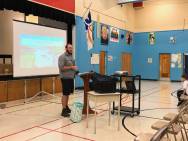

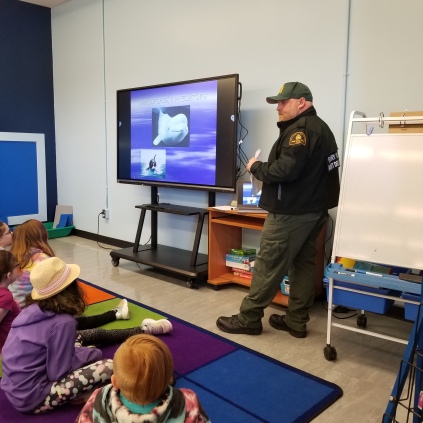





























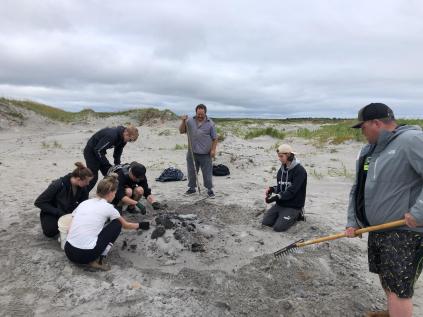







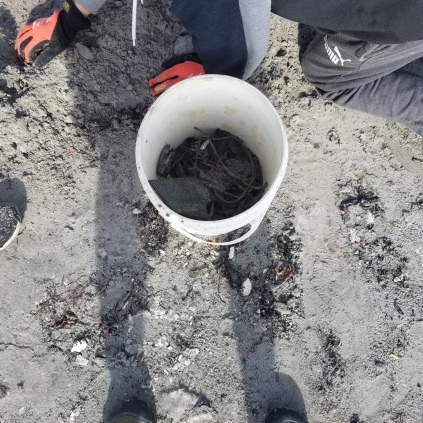












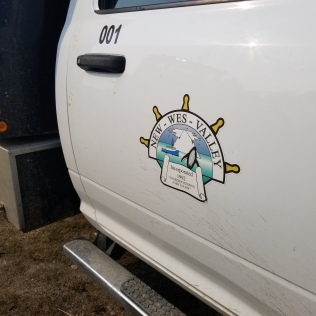

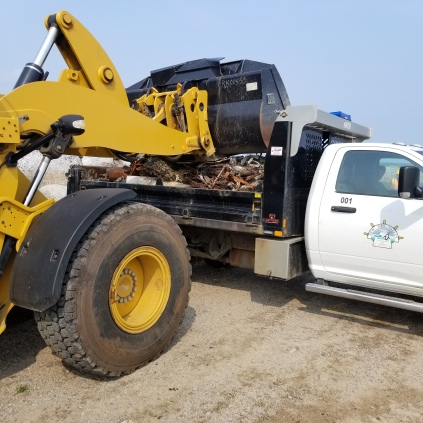






































![20200623_212328[1] 20200623_212328[1]](https://indianbayecosystem.files.wordpress.com/2020/06/20200623_2123281.jpg?w=233&resize=233%2C175&h=175#038;h=175)
![20200623_205447[1] 20200623_205447[1]](https://indianbayecosystem.files.wordpress.com/2020/06/20200623_2054471.jpg?w=233&resize=233%2C175&h=175#038;h=175)
![20200623_194230[1] 20200623_194230[1]](https://indianbayecosystem.files.wordpress.com/2020/06/20200623_1942301.jpg?w=233&resize=233%2C174&h=174#038;h=174)
![20200622_200724[1] 20200622_200724[1]](https://indianbayecosystem.files.wordpress.com/2020/06/20200622_2007241.jpg?w=399&resize=399%2C532&h=532#038;h=532)
![20200622_201452[1] 20200622_201452[1]](https://indianbayecosystem.files.wordpress.com/2020/06/20200622_2014521.jpg?w=228&resize=228%2C303&h=303#038;h=303)
![20200622_200518[1] 20200622_200518[1]](https://indianbayecosystem.files.wordpress.com/2020/06/20200622_2005181.jpg?w=404&resize=404%2C303&h=303#038;h=303)
















